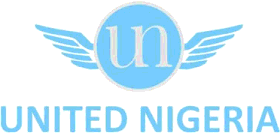 United Nigeria Airlines Adds Third A320, Accelerating Fleet Growth for Regional Expansion
United Nigeria Airlines Adds Third A320, Accelerating Fleet Growth for Regional Expansion
United Nigeria Airlines has marked a new milestone in its fleet development with the addition of a third Airbus A320, leased from Bulgarian carrier Fly2Sky Airlines. This latest acquisition further strengthens the airline’s operational capabilities as it continues to bolster both its domestic and emerging regional network, positioning itself for more ambitious growth in Nigeria and beyond.
The arrival of the third A320 comes on the heels of two similar aircraft being integrated into the fleet over recent weeks. This rapid succession highlights United Nigeria Airlines’ strategy to consolidate its resources and prepare for a significant network expansion. The airline’s move to invest in modern, efficient narrowbody jets aligns with broader trends in African aviation, where carriers are seeking to balance capacity, cost efficiency, and passenger comfort while meeting rising demand across multiple markets.
The presence of three A320s gives United Nigeria Airlines the flexibility to optimize its scheduling, offer more frequent services, and respond swiftly to changes in passenger demand. These aircraft are renowned for their reliability, fuel efficiency, and suitability for both short-haul domestic sectors and regional routes extending into West and Central Africa. For the airline, this means new possibilities for opening direct links between Nigeria’s main commercial hubs and key cities across the subregion.
For industry professionals, United Nigeria Airlines’ fleet upgrade signals a notable shift in Nigeria’s aviation landscape. The carrier’s expansion ambitions send a clear message that Nigerian airlines are ready to compete for a larger share of intra-African traffic. As more airlines across the continent invest in modern aircraft and improved service standards, travelers can expect greater connectivity, more competitive fares, and enhanced travel experiences.
The expansion also has broader implications for the Nigerian travel sector. Enhanced capacity and increased flight frequencies are likely to stimulate demand by making air transport more accessible and appealing for both business and leisure travelers. This, in turn, can support the growth of tourism, trade, and regional integration, benefiting not just the airline, but airports, hospitality providers, and local economies at large.
United Nigeria Airlines’ partnership with Fly2Sky Airlines illustrates the growing trend among African carriers to leverage flexible leasing arrangements. Such collaborations allow airlines to modernize fleets quickly without the long lead times and capital commitments involved in direct aircraft purchases. Leasing also gives operators the agility to adjust fleet size as market conditions evolve, supporting sustainable growth while minimizing financial risk.
With its expanding A320 fleet, United Nigeria Airlines is now well-positioned to pursue opportunities in underserved markets and introduce new direct routes, particularly at a time when passenger confidence in air travel is rebounding across Africa. The move is expected to encourage further investment in aviation infrastructure, training, and support services within Nigeria, reinforcing the country’s status as a key gateway for the sub-Saharan region.
Furthermore, this fleet enhancement reflects a broader shift toward professionalization and modernization in the African airline sector. As more carriers adopt globally recognized aircraft types and operational standards, the continent stands to gain in terms of safety, reliability, and market competitiveness. For travel industry stakeholders, these developments point to a future where African airlines are better equipped to meet rising expectations and capture the economic benefits of a more interconnected region.
United Nigeria Airlines’ latest step is not just about adding another aircraft; it is about laying the groundwork for a more robust and versatile network. As the airline continues to grow, it is likely to play an increasingly influential role in shaping the future of Nigeria’s—and Africa’s—aviation landscape, delivering new opportunities for business, tourism, and cross-border collaboration.
